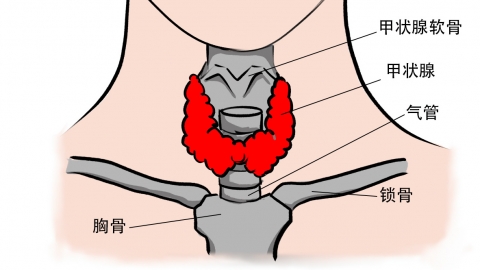What Foods Should Not Be Eaten with Hypothyroidism?
Hypothyroidism usually refers to hypothyroidism. Generally, patients with hypothyroidism do not have absolutely forbidden foods, but it is not recommended to consume raw kelp, nori, cabbage, peanuts, strong tea, and similar items. Detailed analysis is as follows:
1. Raw Kelp
Raw kelp contains high levels of iodine. Some hypothyroid patients have impaired thyroid hormone synthesis, and excessive iodine intake may interfere with normal thyroid function, worsening hormonal imbalances and being detrimental to disease stability. Therefore, it is not recommended.
2. Nori
Like raw kelp, nori is also a high-iodine food. Excessive intake of nori by individuals with hypothyroidism may lead to abnormal thyroid tissue metabolism, affecting thyroid hormone secretion and further aggravating symptoms such as fatigue and cold intolerance. Therefore, it is best to avoid consumption.

3. Cabbage
Cabbage contains thiocyanate, a substance that inhibits the thyroid's uptake of iodine, affecting thyroid hormone synthesis. Excessive consumption of cabbage by individuals with hypothyroidism may exacerbate iodine deficiency and impair hormone production, which is detrimental to disease recovery, thus not recommended.
4. Peanuts
Peanuts contain small amounts of goitrogenic substances. Although the levels are low, long-term and excessive consumption by individuals with hypothyroidism may slightly inhibit thyroid function, interfering with hormone synthesis and不利于 disease control. Therefore, it is best to avoid them.
5. Strong Tea
Strong tea contains tannic acid, which combines with iron in food to form insoluble precipitates that are difficult to absorb. Hypothyroid patients often have concurrent iron-deficiency anemia, and drinking strong tea may worsen iron absorption issues, aggravating anemia and hindering recovery. Therefore, it should be avoided.
Additionally, individuals with hypothyroidism should also avoid consuming white radish, broccoli, and similar foods as much as possible. At the same time, they should maintain regular eating habits, ensure balanced nutrition, and appropriately supplement with high-quality protein in daily life.




